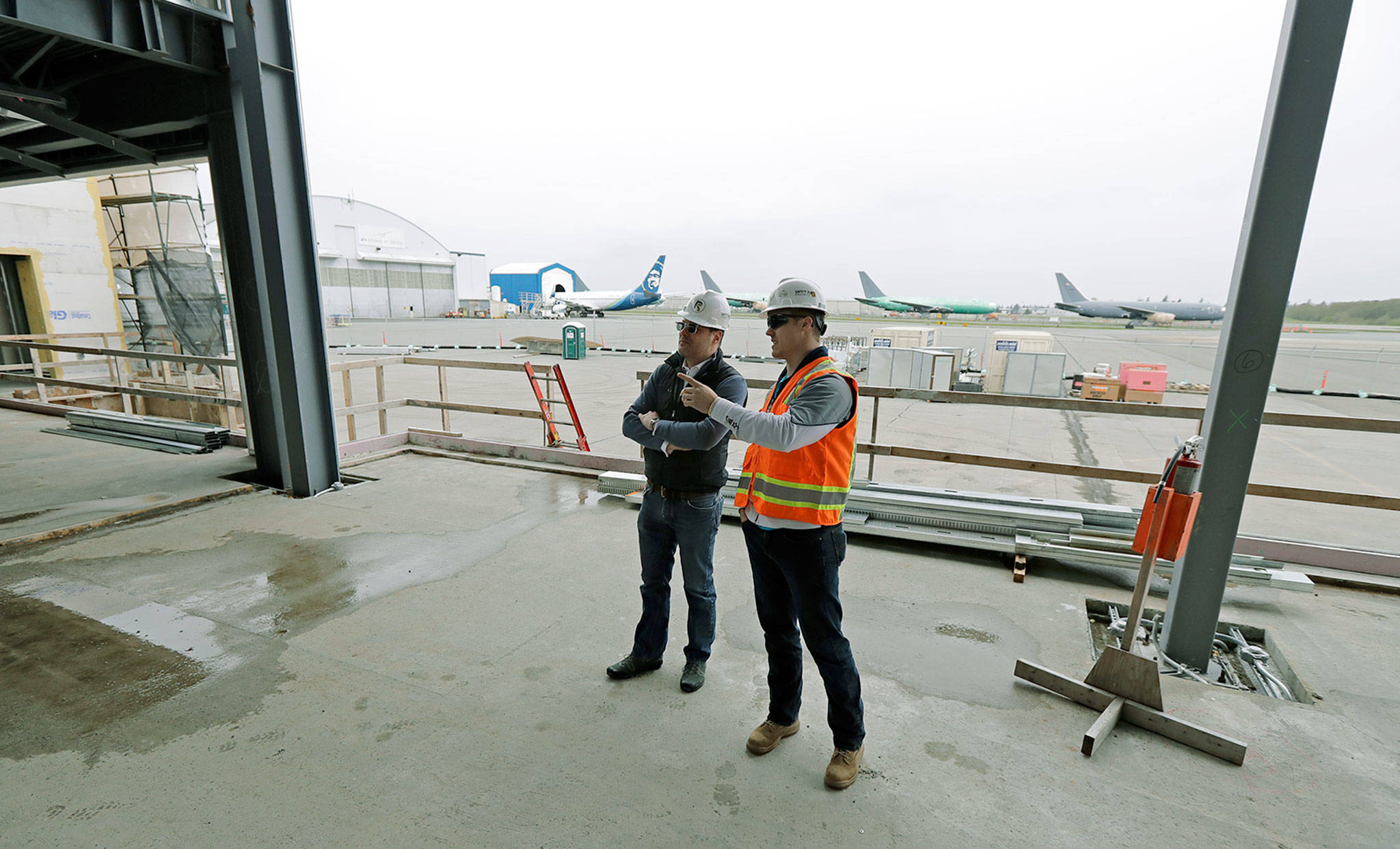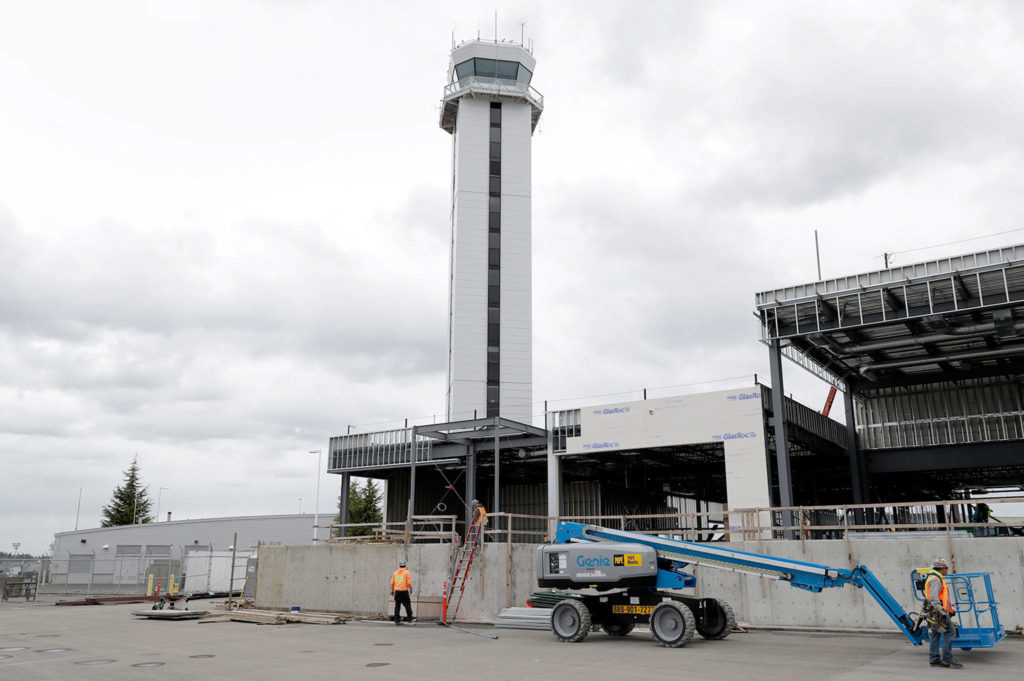By Ahmed Namatalla / Associated Press
EVERETT — The company developing the passenger terminal at Paine Field sold $50 million in bonds earlier this year to finance construction, according to data obtained by The Associated Press.
Propeller Airports sold the debt through the Washington Economic Development Finance Authority, according to data from the agency.
In the non-publicized February sale, Barclays Capital bought all of the bonds and immediately transferred half the amount to Franklin Templeton Investments, said Rodney Wendt, the finance authority’s executive director.
The sale sheds light on finances of the company, which has never run airport infrastructure before and has not previously revealed details about the financial backing behind its terminal plans. It has commitments from Alaska Airlines, Southwest Airlines and United Airlines for up to 24 daily flights, mostly to destinations in the West and Southwest. Service is due to begin this fall.
While privately run airports are common in Europe, they are rare in the U.S. Brett Smith, Propeller’s chief executive officer, is the majority owner of Propeller Investments, the biggest shareholder in Propeller Airports. The company is also backed by one “very large” Seattle-based investor, which he declined to name.
Propeller will invest about $40 million to build the terminal, Smith said. The remaining bond proceeds will finance other capital costs and interest during construction, according to Wendt.
The company secured a 50-year agreement with Snohomish County three years ago to build and operate the terminal at Paine Field.
Smith previously tried to secure deals to establish commercial air terminal operations in Georgia’s Gwinnett and Paulding counties but faced opposition from the communities and Delta Air Lines, which dominates traffic at nearby Hartsfield-Jackson Airport in Atlanta.
Dave Somers, the Snohomish County executive who chaired the County Council in 2015, said the agreement will help create jobs and boost economic growth.
He said the county vetted the company through its attorneys but has no projections for job creation or revenue to be generated by Propeller. It didn’t ask for written operational or financial proposals or the identities of the company’s investors.
“There are different levels of due diligence,” said Somers. “If we were risking significant county resources for somebody to do a project, that might be one thing. But we’re leasing land. It’s like renting a room. This is what we charge, these are the terms and conditions.”
There was no competitive bidding for the terminal because Propeller Airports proposed the idea, Somers said. The county was “obligated” to make airport property available “under reasonable terms” for anyone because that’s a condition attached to the federal grants the airport receives, he added.
Paine Field has received almost $120 million from the Federal Aviation Administration’s Airport Improvement Program since 1949, according to county data. The FAA funds the program with about $3 billion a year to implement upgrades at airports throughout the country.
About $41 million of Propeller’s 30-year debt is exempt from taxes, paying investors 6.5 percent, while the remaining taxable amount pays 7.12 percent.
Those borrowing costs are more than 3 percentage points higher than similar-maturity U.S. Treasury bonds. The riskier a bond, the higher the interest rate its issuer typically has to pay because investors would not buy it otherwise. Borrowers with weak or no credit ratings generally pay the highest interest rates, while bonds issued by high-quality issuers pay the lowest. Propeller doesn’t have a credit rating.
Since the bonds were sold during construction, the interest rate “is less important to us than the long term rate on the permanent financing once the facility is up and running,” Smith said. “The rate is more reflective of the small size, limited liquidity and flexible terms and not the quality of the project.”
The company will be required to pay the debt in 2024 or obtain long-term financing conditions. Neither the county nor the state or the finance authorities hold liability for the bond issuance.
Propeller will pay the county about $450,000 a year to use 10.5 acres of airport land near the control tower, plus 2.5 percent of the project’s revenue for the first four years and 5 percent from the fifth year forward, according to the lease agreement.
AP Business Writer Stan Choe contributed to this story from New York.
Talk to us
> Give us your news tips.
> Send us a letter to the editor.
> More Herald contact information.


























